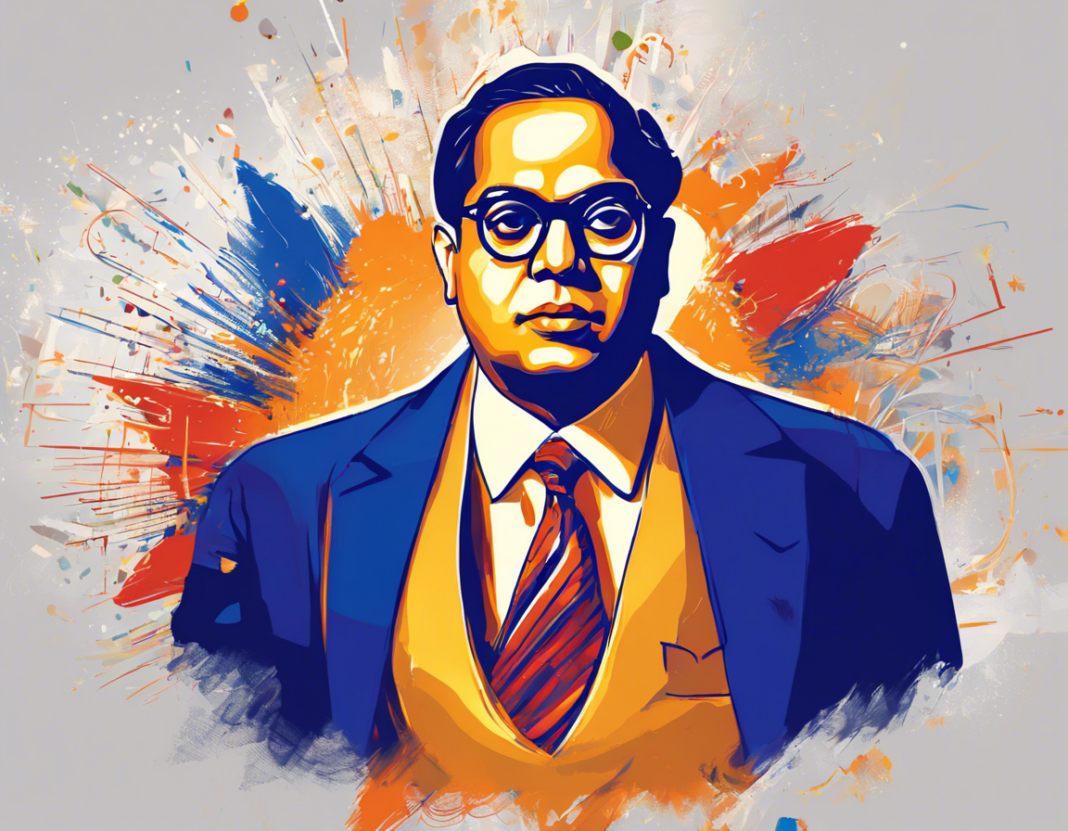Every year on April 14th, India celebrates Ambedkar Jayanti to honor and commemorate the birth anniversary of one of the most influential figures in Indian history – Dr. B.R. Ambedkar. Dr. Bhimrao Ramji Ambedkar, popularly known as Babasaheb, was a jurist, social reformer, economist, and the chief architect of the Indian Constitution. His contributions to the upliftment and empowerment of marginalized communities, especially Dalits, have left an indelible mark on Indian society.
Dr. B.R. Ambedkar: A Brief Overview
Born into a Dalit family on April 14, 1891, in Mhow, Madhya Pradesh, Dr. Ambedkar faced discrimination and social exclusion from a young age. His experiences of caste-based oppression fueled his determination to fight against social injustices and champion the cause of social equality. Despite facing numerous obstacles, he pursued higher education and earned multiple degrees, including a doctorate in economics from the University of London.
Dr. Ambedkar’s tireless efforts towards eradicating caste-based discrimination led him to join the social reform movements of his time. He advocated for the rights of Dalits and other marginalized communities, emphasizing equal rights, social justice, and the abolition of untouchability. His seminal work, “Annihilation of Caste,” remains a critical text that challenges the caste system prevalent in Indian society.
Key Contributions of Dr. B.R. Ambedkar
Dr. Ambedkar’s contributions to Indian society are vast and multifaceted. Some of his key contributions include:
1. Drafting the Indian Constitution
As the chairman of the Drafting Committee of the Constituent Assembly, Dr. Ambedkar played a pivotal role in drafting the Indian Constitution. His vision for a just and egalitarian society is enshrined in the fundamental rights, directive principles, and various provisions of the Constitution.
2. Advocacy for Dalit Rights
Dr. Ambedkar was a staunch advocate for the rights of Dalits and other marginalized communities. He fought against social discrimination and untouchability, seeking to empower the oppressed through education, social reforms, and affirmative action.
3. Emancipation of Women
Recognizing the importance of gender equality, Dr. Ambedkar advocated for women’s rights and worked towards improving the status of women in Indian society. He emphasized the need for education and equal opportunities for women to achieve social and economic empowerment.
4. Economic Reforms
Dr. Ambedkar’s expertise in economics led to significant contributions in the field of finance and economics. He formulated policies to promote economic growth, social welfare, and equitable distribution of resources, laying the foundation for India’s economic development.
5. Champion of Social Justice
Throughout his life, Dr. Ambedkar remained committed to the principle of social justice. His writings, speeches, and actions aimed to create a more just and inclusive society where every individual is treated with dignity and respect, irrespective of caste, creed, or gender.
Celebrating Ambedkar Jayanti
Ambedkar Jayanti is celebrated across India with great enthusiasm and reverence. Public gatherings, seminars, and cultural programs are organized to pay tribute to Dr. B.R. Ambedkar’s legacy and teachings. Statues and portraits of Babasaheb are garlanded, and his famous speeches are remembered and recited.
Some of the common practices observed on Ambedkar Jayanti include:
- Prayer meetings and offerings at memorials and Ambedkar’s statues
- Distribution of sweets and food among the underprivileged
- Essay competitions and educational seminars highlighting Dr. Ambedkar’s contributions
- Cultural programs, plays, and film screenings depicting his life and work
FAQs about Ambedkar Jayanti
1. Why do we celebrate Ambedkar Jayanti?
Ambedkar Jayanti is celebrated to honor the birth anniversary of Dr. B.R. Ambedkar, a visionary leader who dedicated his life to fighting for social justice, equality, and the rights of marginalized communities.
2. What is the significance of Dr. B.R. Ambedkar’s contributions?
Dr. Ambedkar’s contributions are significant as he was instrumental in drafting the Indian Constitution, advocating for Dalit rights, promoting gender equality, and championing social justice and economic reforms.
3. How can we pay tribute to Dr. B.R. Ambedkar on his Jayanti?
One can pay tribute to Dr. Ambedkar by organizing or participating in events that celebrate his life and teachings, promoting social equality and justice, and working towards empowering marginalized communities.
4. What lessons can we learn from Dr. B.R. Ambedkar’s life?
Dr. Ambedkar’s life teaches us the importance of perseverance, education, social reform, and the relentless pursuit of justice and equality for all members of society, especially those who have been historically oppressed.
5. How does Dr. B.R. Ambedkar inspire future generations?
Dr. Ambedkar’s legacy continues to inspire future generations to stand up against injustice, inequality, and discrimination, and work towards building a more equitable and inclusive society based on his principles of liberty, equality, and fraternity.
As we commemorate Ambedkar Jayanti, let us reflect on the teachings and ideals of Dr. B.R. Ambedkar and strive to carry forward his legacy of social reform, justice, and empowerment for all.




